#russo-turkish war
Text
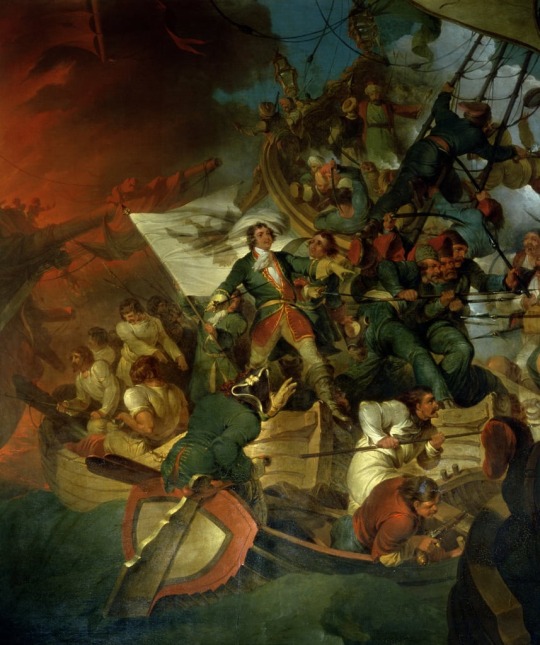
Capture of Azov, 18th May 1696 by Sir Robert Ker Porter
#peter the great#peter i#tsar#emperor#russian empire#russian#russia#art#history#europe#european#capture#azov#monarch#monarchy#tsardom of russia#sir robert ker porter#russo-turkish war#sea of azov#black sea#ottoman empire#turks#turkish#fortress#captured#azov campaigns#1695#1696#navy#maritime
29 notes
·
View notes
Text
1807-Battle of Athos
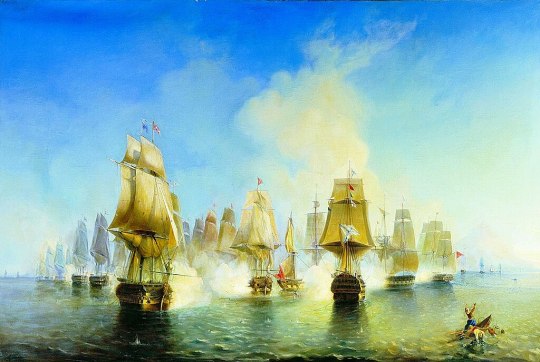
Admiral Dmitry Senyavin destroys the Ottoman fleet in the Battle of Athos.
0 notes
Text
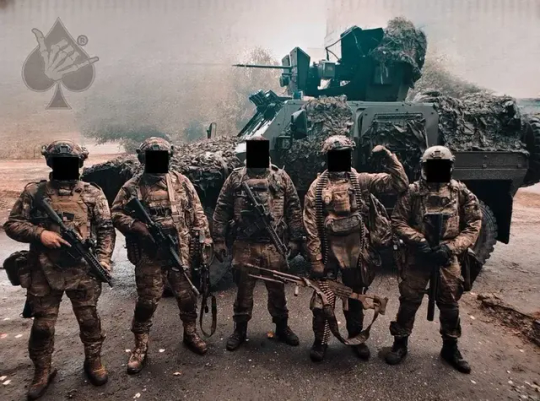
Ukrainian soldiers with a Otokar Cobra II MRAP
22 notes
·
View notes
Text
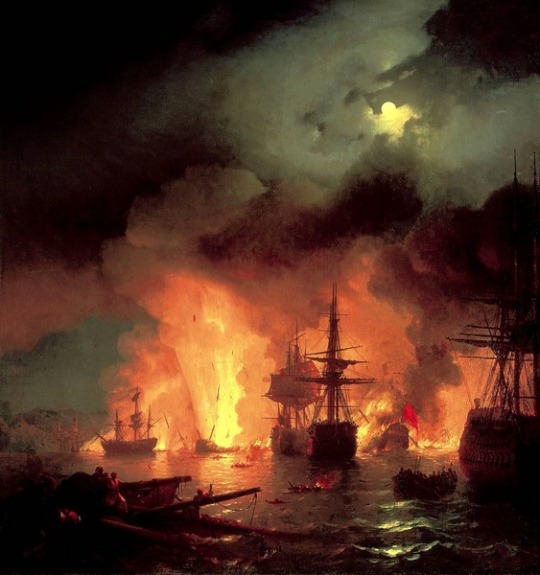
Battle of Chesmensky, 5-7 July 1770, by Ivan Konstantinovich Aivazovsky (1817, 1900)
113 notes
·
View notes
Text
🇹🇷🇵🇸 MASSIVE RALLY TODAY IN ISTANBUL, TURKIYE IN SOLIDARITY WITH PALESTINIANS UNDER SIEGE AND BOMBARDMENT IN GAZA
A massive rally of thousands of people standing in solidarity with Palestine is ongoing in Istanbul, Turkiye on Friday as Turkish President, Racep Tayyip Erdogan addressed the "Great Palestine Meeting" as it is being called.
The Turkish President invited the entire nation to join the rally to show their support for Palestinians suffering under Israeli occupation and bombardment. Erdogan called on the rally to show “brotherhood between Turks and Palestinians to the world.”
With Palestinian and Turkish flags waving in the crowds that, by some estimates, has reached over 1.5 million across Turkiye, Erdogan told the rally that Western nations were responsible for the current crisis in the Middle East.
"The main culprit behind the massacre unfolding in Gaza is the West," Erdogan told his nation. "If we leave aside some conscientious voices... the massacre in Gaza is entirely the work of the West."
Erdogan also accused Israel of acting as a "War Criminal."
"Of course, every country has the right to defend itself. But where is the justice in this case?"
In addition, Erdogan accused Western Countries of "shedding [crocodile] tears" over the deaths of Ukrainian civilians in the Russo-Ukrainian conflict, while turning a blind-eye to the suffering and murder of Palestinians.
"We are against all these double standards and all these hypocrisies," Erdogan told the throngs gathered in support of Palestine.
Erdogan went on to accuse Israel's allies of creating a "crusade war atmosphere" to encourage conflict in the region.
"Listen to our call for dialogue," President Erdogan said. "No one loses from a just peace."
Aside from President Erdogan, various Turkish Party leaders, state authorities, and officials from different countries are expected to give remarks at the rally, along with representatives of the media, arts, sports, culture and business interests in Turkiye.
According to the updated figures on the war in Gaza, 7'703 Palestinians have been killed in Israeli air strikes and shelling, with more than 3'500 of those deaths among children. Another 17'000+ have been wounded.
#source
@WorkerSolidarityNews
#palestine#turkiye#gaza#gaza strip#gaza war#gaza news#palestine news#palestinians#free palestine#free gaza#israel#israel news#israeli occupation#israeli apartheid#israeli war crimes#turkey#turkiye news#middle east#war#war news#news#politics#geopolitics#world news#global news#international news#global politics#world politics#WorkerSolidarityNews#erdogan
359 notes
·
View notes
Note
How can you claim that Zionism was morally right, when what it was was European Jews coming to Palestine by the thousands and buying land, and when the Arabs realised what they were trying to do, i.e. steal land by making it sound reasonable to the British they should have the right to self determination, they rightfully tried to put a stop to it? If a lot of people come into a populated area and then ask for it to be given to them, since they’re so many, does it make it right for the people who were already there? And yeah, it’s true there was some Jewish presence there already but it wasn’t that much and it wasn’t them who started the Zionist movement. So how can you claim this was right?
You just said they were buying the land, and they were, so anyone thinking they were stealing it is already revealing major problems with racism, xenophobia, and conspiratorial thinking.
And by all means, let's talk about "immigrants" versus "people who were already there." From the 1850s to 1920s, the Ottoman Empire faced waves of refugee crises (the Crimean War, the Balkan Wars, the Russo-Turkish War, the Austro-Hungarian occupation of Bosnia-Herzegovina, and the beginning of World War 1) and decided to resettle OVER FIVE MILLION Muslim refugees all throughout its Mediterranean and Levant provinces. They sent hundreds of thousands of ex-Balkan and ex-Russian Muslims into southern Syria and what is now Jordan. These refugees founded the four largest cities in Jordan, including its capital Amman; of course, Jordan had been part of historic Palestine and the Palestine Mandate, and from the very first day they were able to govern themselves they passed laws banning any Jewish citizenship or inhabitation.
Am I supposed to see that as anything other than the most base, ladder-pulling racism? Do you really expect me to care that ex-Russian Muslims arriving in Jaffa in 1890 wanted to keep the ex-Polish Jews out in 1920? Between the Ottoman refugee resettlement and the large numbers of Arabs immigrating to benefit from new economic opportunities in a rapidly developing Palestine, the United Nations would later come to classify people as "refugees of the 1948 war" if they had been permanent inhabitants of Palestine any time before 1946. So many newcomers that just living there for two years made you a wizened, old-timer local, with a perfectly natural right to say nobody else can come in.
Where exactly are you starting history and whose immigration are you seeing as rightful, as just? In 1832, Egypt invaded Ottoman Palestine and established from nothing the new settler town of Abu Kabir; in 1948, Zionist militias depopulated it. Were the Arab settlers of Abu Kabir "indigenous" for the 116 years they were there? Because the major waves of Jewish immigration to Palestine started about 140 years ago....
There is no such thing as a legitimate history of the Levant that sees it as normal and morally / politically neutral for millions of Muslims to be resettled by various Muslim empires, but abnormal and dangerous for Jews to move in under their own initiative - usually out of desperation to save their lives - with no sponsoring empire at all.
Beyond that, if you took a few minutes to think of what your argument implies about the "Great Migration" of African-Americans to northern states in the early 20th century, or refugees crossing the Mexican border, and how white people responded to both, I think you would be less willing to make it, even anonymously.
163 notes
·
View notes
Note
I was gonna ask you some stuff about Quincey and the aftermath of the Civil War, but that wasn't really near the 1890s so idk if it's relevant.
Also similar to Mina maybe supporting eugenics I would imagine Seward probably engages in a lot of pseudosciences
But more interestingly, what do you think Dracula's politics would be? He's pretty removed from human society by being a vampire and his home in Transylvania is pretty remote, but he was still a nobleman there and he was moving to England, which he planned to conquer. I'm curious where he'd fall, when pretending to be and working with (?) humans in Romanian politics (if you feel like researching it) and English politics. Another cool layer to this is if you subscribe to the popular theory that he's really Vlad the Impaler. What would a warlord from the mid-1400s think of the politics 400 or so years later? That's barely even thinking about him being a vampire.
Also, what would Renfield's politics be like?
Quincey and the aftermath of the Civil War is a fascinating question that I will definitely leave for someone who knows more US history than I do.
Dracula, on the other hand... first of all, the relevant set of politics is Hungarian, not Romanian. Transylvania was part of Austria-Hungary in the 1890s. There's actually an interesting story here, in that vampire myth was originally associated primarily with Hungary. Then Bram Stoker set Dracula in Transylvania, which became part of Romania in 1920, and Romania ended up inheriting vampire myths in the process. Which has generally done the Romanian tourist industry no harm at all. (Though when I was in Bucharest last weekend, my lovely tour guide, Andrea, was clearly a bit annoyed by people asking about it).
Anyway, we have a decent sense of what Dracula's politics are, because he spells them out on May 8: he's proud to be part of a fighting, conquering race, he values "warlike days", he disdains peasants, and he generally holds that might makes right.
Given his pride in "beating the Turk on his own ground", I think we can assume that he didn't approve of Austria-Hungary's neutrality in the Russo-Turkish War in 1877-8.
In some ways he fits into contemporary society. He is a boyar, one of the highest rank of feudal nobility, who retained a great deal of power in 1890s Austria-Hungary. Where in the UK the growth of industry made the middle classes wealthier, in Austria-Hungary that wealth often went straight back to the nobility. Just six percent of the population had the right to vote in general elections, compared with 18% in the UK (meanwhile New Zealand had universal suffrage from 1893).
But Dracula is still a product of an earlier time. He wants to increase his power through conquest, not through modernising his estate or being appointed to the board of directors of a bank. And while Austria-Hungary did grow through conquest (occupying Bosnia and Herzegovina in 1878, for instance), it wasn't at nearly the same scale as other contemporary empires - for example, Austria-Hungary didn't take part in the Scramble for Africa.
Honestly, it makes perfect sense that Dracula would want to come to Britain. If he wanted conquest, carried out with indifference to cruelty, he would have got on extremely well with Cecil Rhodes. To an extent this is what the story of Dracula is about: what if foreigners came to Britain and did to us what we do to them? The War of the Worlds, published at the same time, asks essentially the same question but with aliens.
(This is the bit where someone comes along and says yes, but don't forget that Bram Stoker was Irish. Which is true, but he was also a supporter of the British Empire.)
As for Renfield, most of what we learn about his politics comes from October 1. He's from high society and is a member of the Windham Club. He celebrates the roles Quincey, Van Helsing and Arthur play "by nationality, by heredity, or by the possession of natural gifts" - in other words, he seems to be open to people advancing themselves through meritocracy, but also through hereditary rights. To me, this reads as conservative, but not reactionary.
One thing that does strike me is that his point about Texas - celebrating its admittance to the Union - relates to history that was 50 years old at that point (Unless I'm misunderstanding the reference?). Renfield is 59 during the events of Dracula. Is the implication here that he's stuck in the past? We don't know how long he's been institutionalised, but since his memories of Arthur's father relate to youthful drinking games, it could be 30 years or more. He may be disconnected from contemporary politics - and given how much the world changed in the late 19th century, that could make for quite a shock if he'd ever had the chance to learn more.
As ever, I'm not a historian, and other people should feel free to offer corrections.
40 notes
·
View notes
Text
Please reblog for a bigger sample size!
If you have any fun fact about the Ottoman Empire, please tell us and I'll reblog it!
Be respectful in your comments. You can criticize a government without offending its people.
36 notes
·
View notes
Photo
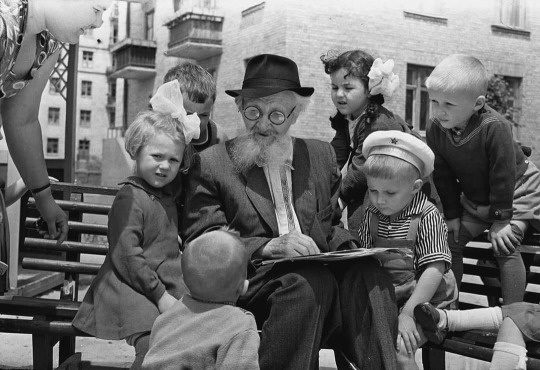
104-year-old man from Kyiv who took part in the last Russo-Turkish War (1877-1878) spending time with his little neighbors, 1959
115 notes
·
View notes
Text
Russo-Turkish War (1877–1878)
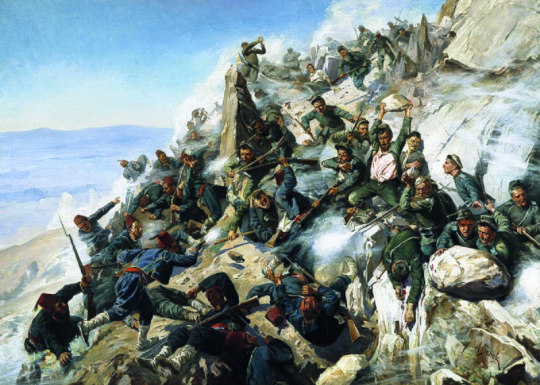
On 24 April 1877 Russia declared war on the Ottomans.
1 note
·
View note
Text
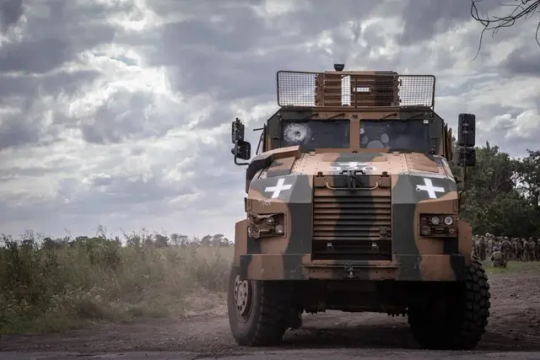
Turkish BMC Kirpi still in its Syria camo pattern in service with the Ukrainian Navy Marine Infantry.
20 notes
·
View notes
Text
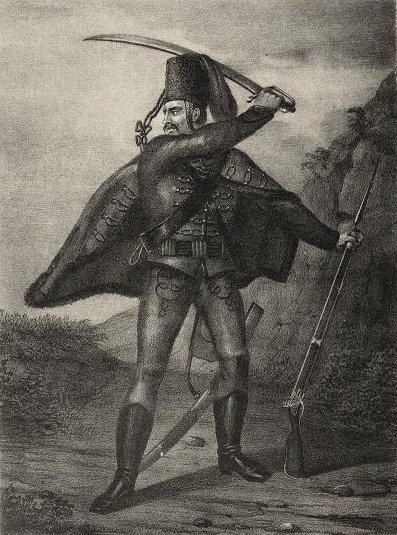
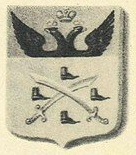
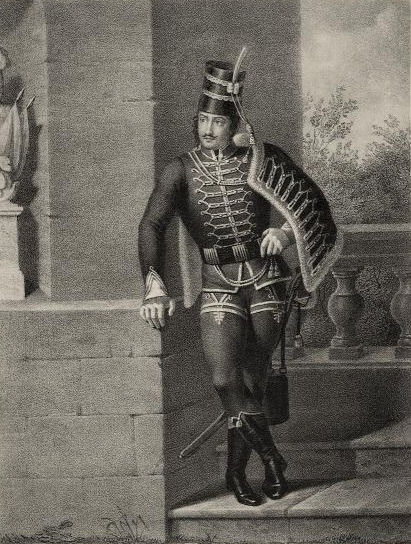
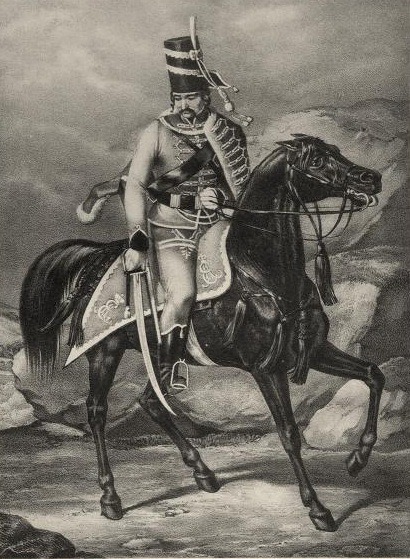
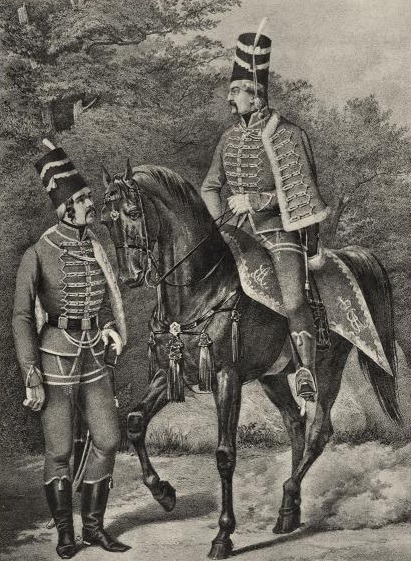
Serbian Hussar regiment in Russian empire (1723-1783).
Due to Rakoczi's war of independence (1703-1711), position of Serbian militiamen in Militargrenze (Military Frontier) of the Habsburg monarchy was endangered. In 1704, first Serb attempts were made to offer their services to Russian empire in their struggle against Ottomans. Before Russian-Turkish war of (1710-1711) began, Russian emperor Peter the Great invited Serbian militiamen to join Russian army. During this period small group of Serbs led by Jovan Albanez emigrated to Russia. Albanez distinguished himself during Pruth river campaign, so Peter the Great decided to expand the unit and create entire Serb Regiment.
In 1723, Peter sent Albanez to recruit more people for the regiment. Invitation letter carried by Jovan Albanez was personally signed by Peter the Great on 23rd of October 1723. Evey militiamen who emigrated to Russian empire would be granted arable land and additional privileges. Recruitment campaign of Albanez was quite successful.
On 1724, Serb Command was placed under command of Kiev garrison. Large scale of recruitment was opposed by Austria so to reach aimed number of the regiment some cossacks were also transferred to it. Serbian Hussar regiment served as a model for establishment of of few additional regiments such as Hungarian, Georgian and Moldovan.
During its existence Serb Regiment saw action during securing Ukrainian front, southern Persia and later in War of Polish succession, as well as in Russo-Swedish war of 1741-1743).
24 notes
·
View notes
Text
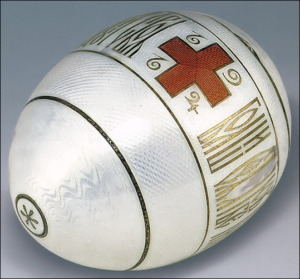

Red Cross Portraits Egg (1915)
Description: Opalescent white guilloché enamel covers a chased silver ground on this egg. Two opposing red enamel crosses bear the dates 1914 and 1915. A Russian inscription, in stylized gold enamel script in a band around the egg reads: “Greater love hath no man than this, that a man lay down his life for his comrades.” On the top of the egg is the crown and monogram of the Dowager Empress Marie in silver, while at the bottom is a six-petal rosette. The egg contains a hinged, folding screen of five oval miniature portraits, each set in an opalescent white enameled panel mounted in gold. The portraits, by Vasilii Zuiev, are of:
Grand Duchess Olga Alexandrovna, the tsar’s sister
Grand Duchess Olga Nicolaievna, his eldest daughter
Tsarina Alexandra Feodorovna
Grand Duchess Tatiana Nicolaievna, the tsar’s second daughter
Grand Duchess Marie Pavlovna, the tsar’s first cousin
Each wears the uniform of the Red Cross, whose symbol surmounts the individual panels. Each miniature is backed with mother of pearl and has the monogram of the person whose painting appears on the front (Snowman, 1962; Lesley, 1976).
Background Notes: This egg pays tribute to the service rendered to the Red Cross by Marie Feodorovna, first as tsarevna (crown princess) during the Russo-Turkish War of 1877, and then as president of the organization from the beginning of her reign until the fall of the Romanov dynasty. On March 25 (OS), 1915, Marie wrote to her daughter Olga:
My dear Nicky sent me a charming egg that I did not expect at all this year. It is covered in white enamel and has a red cross on both sides with the words of the Apostle John: Greater love hath no man than this that a man lay down his life for his friends. There are five miniature portraits in frames inside the egg: yours, Olga, Alix, Tatiana and Marie, all en soeurs to charité (Ed. note: as sisters of charity)! Simply captivating. Fabergé is simply a genius and the greatest artist of our century. I am delighted. (Korneva & Cheboksarova, Empress Maria Feodorovna’s Favorite Residences in Russia and in Denmark, St. Petersburg, 2006).
Marie Feodorovna and other Romanov women did not shirk their wartime duty. The dowager empress opened a hospital in the Anichkov Palace and she made bandages. As well, she made gifts and sorted sheets for sickbeds in a palace dining room; she paid for two military trains and visited hospitals in Petrograd and Kiev. In a letter dated December 15 (OS) 1914 to Grand Duchess Nicholas Michaelovich, Marie wrote:
I go to hospitals as often as I am able. This is the only consolation for me. All of the wounded are dear to us and ennoble one’s soul … I admire them sincerely and I am ready to go on my knees before every one of them (Korneva & Cheboksarova, Empress Maria Feodorovna’s Favorite Residences in Russia and in Denmark, St. Petersburg, 2006).
The invoice for the 1915 Tsar Imperial Easter eggs appears lost. But an article published by Tatiana Muntian in December, 2013, to mark the 400th anniversary of the Romanov dynasty, included material from newly-discovered documents about the individual Imperial Easter Eggs for 1912, 1914, and 1915. The Red Cross Portraits Egg had cost just 3,875 rubles.
The 1917 inventory of confiscated Imperial treasure records, “Gold [sic] egg, covered with white enamel and a red cross, on small stand, containing a small, mother-of-pearl white enamel screen and with portraits of Imperial personages in a gold setting.” (Fabergé, Proler, & Skurlov, Fabergé Imperial Easter Eggs, London, 1997)
An expert valuation was made of this egg in 1927. Found by Fabergé, Proler, & Skurlov, the valuation estimated the egg’s worth at just 1,632 rubles-less than a tenth of the average value of the other fifteen eggs on the list. This was the first of five Imperial Easter eggs to be purchased by Lillian Thomas Pratt, wife of a General Motors executive, of Fredericksburg, Virginia.
15 notes
·
View notes
Text
"... today, finally, the courier arrived and brought your sweetest interesting and long letter No. 78. You cannot imagine what happiness it is for me to receive such letters, how I enjoyed it and how sad I feel, how I long to go home. I even cried a little, because I don’t allow myself this pleasure, it often becomes hard, as you start to remember about the house, about the children, and especially about you, my darling! I'm sorry that I write all this and upset you even more; I know that you are not happy either, this separation is not easy, but what to do, the Lord so pleases, and we must bow before His holy will, and this always leads to the best, to our own benefit, for sure, it cannot be otherwise, and this is a huge and only consolation"
Letter from Tsarevich Alexander Alexandrovich to Tsarevna Maria Feodorovna during the Russo-Turkish War (January 13, 1878)
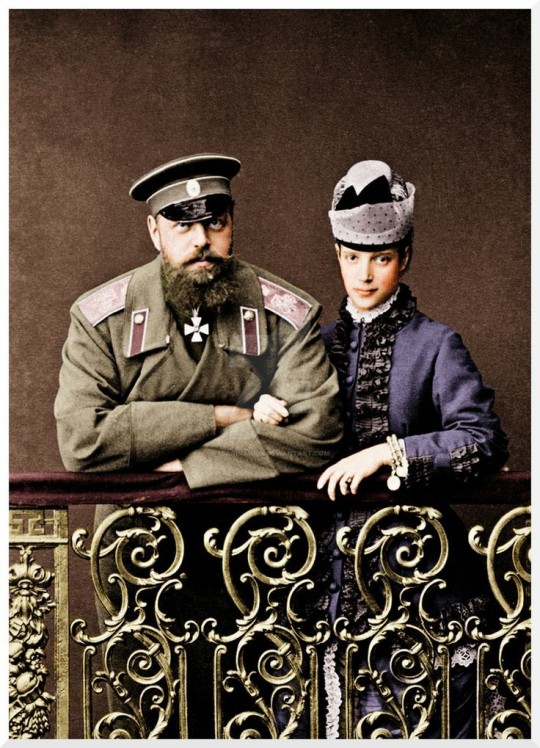
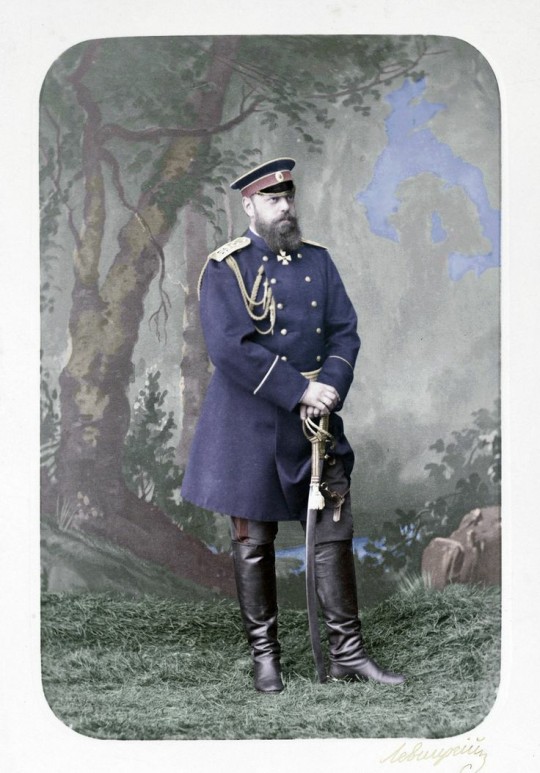
#alexander iii#maria feodorovna#czar alexander iii#royalty#history#historical couples#royals#the romanovs#russia#tsar alexander iii#dagmar of denmark#love#letters#tsar nicholas ii#nicholas ii#otma#otmaa#imperial russia#europe
29 notes
·
View notes
Text
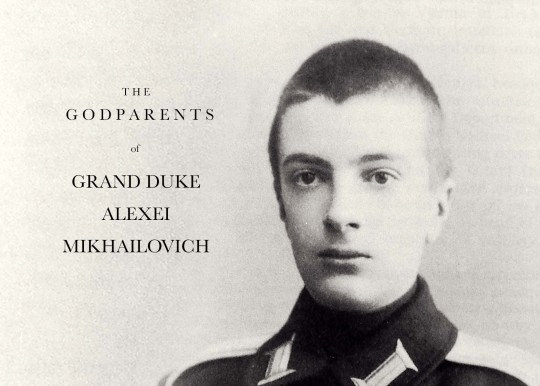
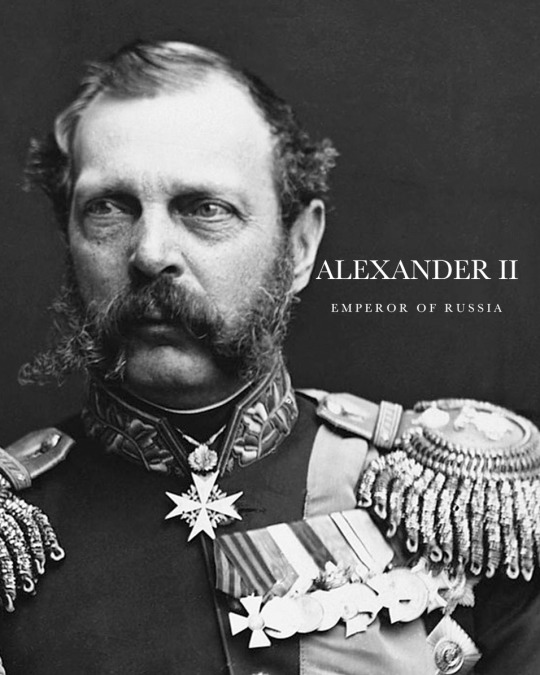
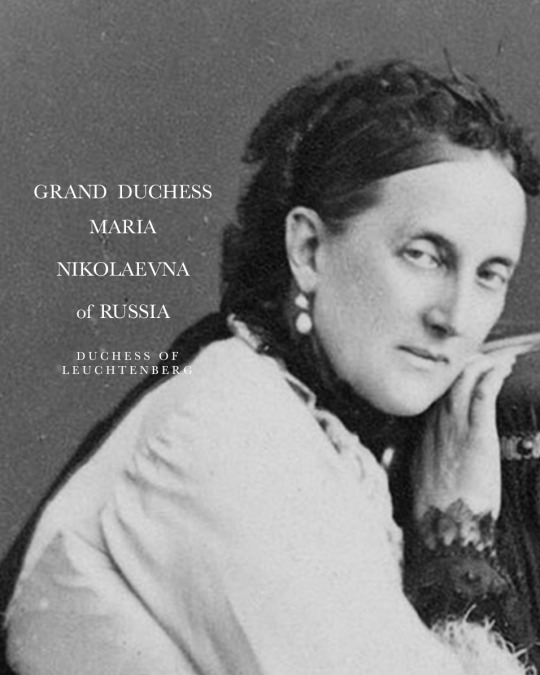
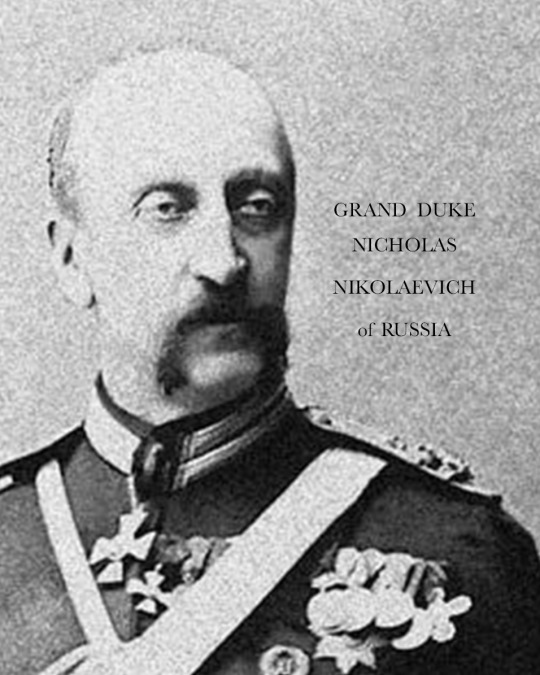

GODPARENTS OF GRAND DUKE ALEXEI MIKHAILOVICH
Grand Duke Alexei Mikhailovich was born on 28 December 1875 in Tbilisi, Tbilisi Governate, Russian Empire (now Georgia). He was the the sixth son and youngest child of Grand Duke Michael Nikolaevich of Russia, himself the youngest son of Emperor Nicholas I. He was the only Grand Duke to bear the name and patronymic of a Tsar: Alexei Mikhailovich. On 11 January (New Style) 1876, he was christened at Tbilisi by the Palace Priest and Confessor of Their Imperial Highnesses. He had seven godparents, as listed:
ALEXANDER II, EMPEROR OF RUSSIA - his uncle, the Russian Emperor stood as one of the godparents. He became the Emperor of All Russia in 1855. Alexander’s most significant reform as emperor was the emancipation of Russia’s serfs in 1861, for which he is known as Alexander the Liberator.
GRAND DUCHESS MARIA PAVLOVNA OF RUSSIA, GRAND DUCHESS CONSORT OF SAXE-WEIMAR-EISENACH - his aunt was one of his godparents. One of the daughters of Emperor Paul I, the grand duchess married a German prince Karl Friedrich, Grand Duke of Saxe-Weimar-Eisenach in 1804. She was an intellect, interested in both arts and sciences. German poet and novelist Johann Wolfgang von Goethe hailed her as one of the worthiest women of his time. She was the great-grandmother of Wilhelm II, German Emperor and Queen Victoria of Sweden.
GRAND DUKE NICHOLAS MIKHAILOVICH OF RUSSIA - his uncle, was one of his godparents. Trained for the military, as a Field Marshal he commanded the Russian army of the Danube in the Russo-Turkish War, 1877–1878.
GRAND DUCHESS MARIA PAVLOVNA OF RUSSIA - known as 'Maria Pavlovna the Elder', was the wife of his first cousin Grand Duke Vladimir Alexandrovich, and stood as one of his godparents. Born as Duchess Marie of Mecklenburg-Schwerin, her ancestors included Emperor Paul I of Russia. Upon her marriage to the grand duke, she became a prominent hostess in Saint Petersburg.
GRAND DUKE ALEXEI ALEXANDROVICH OF RUSSIA - his first cousin and namesake, one of the sons of Emperor Alexander II, was one of his godparents. Chosen for a naval career, Alexei Alexandrovich started his military training at an early age. By the age of 20 he had been appointed lieutenant of the Imperial Russian Navy, eventually becoming general-admiral.
GRAND DUCHESS ANASTASIA MIKHAILOVNA OF RUSSIA, GRAND DUCHESS OF MECKLENBURG-SCHWERIN - his sister, was one of his godparents. In 1879, when Alexei Mikhailovich was only four years-old, his only sister married a German prince, Friedrich Franz III of Mecklenburg-Schwerin (the elder brother of Grand Duchess Maria Pavlovna the Elder). Their children included Queen Alexandrine of Denmark and Crown Princess Cecile of Prussia. She was a strong-willed, independent and unconventional woman. She never became used to her new country where she was unpopular.
GRAND DUKE MICHAEL MIKHAILOVICH OF RUSSIA - one of his older brothers stood as another of his godparents. As Romanov tradition demanded, he followed a military career. He served in the Russo-Turkish War in 1877, became a Colonel and was adjutant at the Imperial court. In 1891 he contracted a morganatic marriage with Countess Sophie von Merenberg, a morganatic daughter of Prince Nicholas William of Nassau and a granddaughter of the Russian poet Alexander Pushkin. For contracting this marriage without permission, their first cousin Emperor Alexander III stripped him of his military titles and banished the couple from the Russian Empire. Alexei Mikhailovich never saw his brother again after his banishment.
Source
#alexei mikhailovich#romanovs#history#alexander ii#maria pavlovna the younger#maria nikolaevna#nicholas nikolaevich#alexei alexandrovich#anastasia mikhailovna#michael mikhailovich#godparents
23 notes
·
View notes
Text
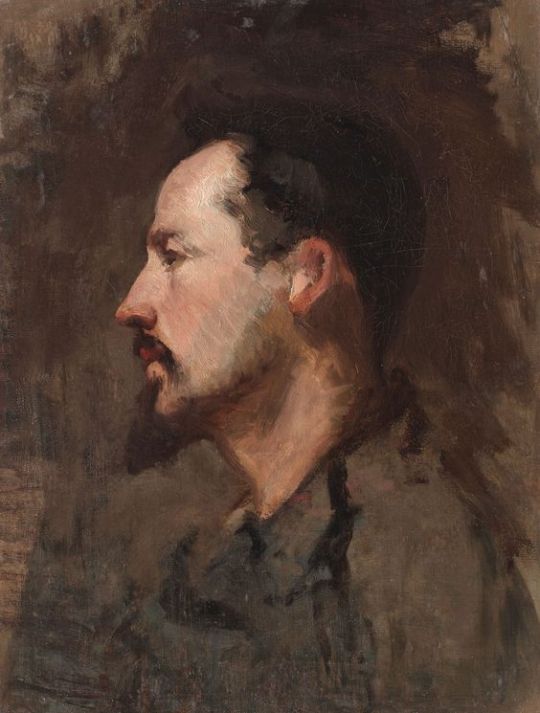
'Self Portrait' by Romanian painter Nicolae Grigorescu (1838 - 1907). Grigorescu was a foundational painter for modern Romania in so far as his compositions became the guide to those who came after him for visual composition. His period as a war artist in the Romanian war of independence, known outside Romania as the Russo-Turkish war, where in that war the Romanians fought with the Russians against the Turks for their own freedom from the Ottoman Empire, also made Grigorescu one of the people to be feted when he is remembered.
8 notes
·
View notes